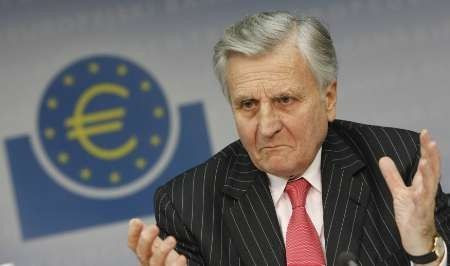2011 will be another tough year for eurozone

Growth in the eurozone will be weaker than in the US and the UK in 2011 and the euro will fall further, despite positive near-term forecasts for the region and improving global economic prospects, analysts have said.
... we now expect eurozone economic growth to slow a little less sharply next year, Ben May, economist at Capital Economics wrote in a note on Thursday. We have revised up our 2011 GDP growth forecast from 0.5% to 1.0%. But this is still below the consensus forecast of a 1.5% gain. What’s more, we have revised down our 2012 forecast down slightly, from 1.0% to 0.5%.
The analyst says the common euro currency will fall much further as worries about the future of the single currency are likely to increase while economic performance will lag behind the U.S. and UK. However, Capital Economics says it still thinks euro will reach parity against the dollar in 2012.
EUROZONE'S STRENGTHS INTO 2011
For some time now, our forecasts for the eurozone have sat firmly at the pessimistic end of the spectrum. But recent news suggests that the recovery is not losing steam quite as quickly as we had previously anticipated, writes May.
He says export growth has remained very robust, and this trend is likely to expand at a pretty healthy pace into the next year. The recent renewed upturn in survey measures of firms’ export orders bodes well in the near term. Needless to say, the recent fall in the euro will also help the sector next year.
There are also signs domestic spending is picking up fast enough to partially offset any slowdown in export growth. Investment has begun to increase in parts of the region, and consumer sentiment has shown that household spending is showing growth.
MAJOR RISKS
May says there are at least three factors that will pull back growth next year. First, despite the more upbeat outlook for growth in parts of the global economy, such as the US, we have only revised up our global growth forecast slightly and expect annual growth to slow from 4.5% in 2010 to 3.5% in 2011 and to 3.0% in 2012.
Secondly, he says, the recent boost to growth from inventories will end once firms’ stocks return to more normal levels. According to the EC survey, firms stocks are already broadly in line with their desired levels, implying that further sharp rises in inventories are perhaps unlikely, May wrote in a note.
Finally, any further rise in household spending growth could prove temporary. Although there are signs that the unemployment rate has plateaued, slowing wage growth will still put downward pressure on total labour income growth next year.
There is also the chance that some of the peripheral economies will be forced to adopt biting fiscal measures to meet their budget deficit goals, meaning households will have to face another tough year ahead.
© Copyright IBTimes 2025. All rights reserved.





















